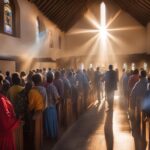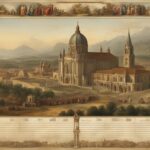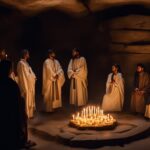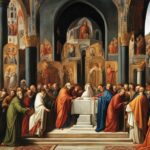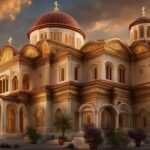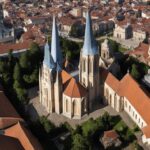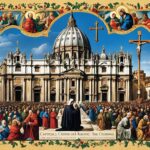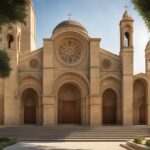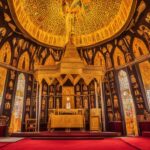The Moravian Church has a rich and enduring history that dates back over five centuries. Its origins can be traced to ancient Bohemia and Moravia, in what is now the Czech Republic. The church was officially organized in 1457 in the village of Kunvald by followers of Jan Hus, a Catholic priest who protested against the practices of the Roman Catholic Church.
Through the centuries, the Moravian Church faced persecution and exile, but it persisted in its mission. The church flourished in the 16th century, with a strong emphasis on universal education and a growing presence in the Czech lands. However, during the 17th century, the church was forced underground due to persecution. It experienced a powerful renewal in the 18th century under the leadership of Count Zinzendorf and played a significant role in the development of Protestant missionary work.
Today, the Moravian Church continues to thrive globally, with vibrant congregations around the world. Its rich history and deep spiritual roots make it a unique and influential denomination within Christianity.
Key Takeaways:
- The Moravian Church has a history dating back over five centuries.
- It was officially organized in 1457 by followers of Jan Hus in the Czech Republic.
- The church flourished in the 16th century and experienced a renewal in the 18th century.
- The Moravian Church played a significant role in the development of Protestant missionary work.
- Today, the Moravian Church continues to thrive globally with vibrant congregations worldwide.
Beliefs and Doctrines of the Moravian Church
The Moravian Church is founded on the belief in Jesus Christ as Lord and Savior. Central to the church’s teachings is the importance of faith, love, and hope in the Christian life. Members of the Moravian Church strive to live out these values in their daily lives, seeking to embody the teachings of Christ through their actions and attitudes.
Baptism holds a significant place in the Moravian Church as a sacrament. The church practices both infant baptism and adult baptism, acknowledging the covenant relationship between the individual and God. Through baptism, individuals are welcomed into the faith community and are seen as part of the larger family of believers.
The Moravian Church also celebrates the sacrament of Holy Communion, also known as the Eucharist. During this sacred act, members partake in communion elements, such as bread and wine, believing in the unique presence of Christ in these elements. It is a time of spiritual nourishment and personal connection with God and fellow believers.
Educational growth and spiritual development are highly valued in the Moravian Church. Personal prayer, study, and reflection are encouraged as a means to deepen one’s relationship with God and understand the teachings of Jesus Christ. The church believes that a well-informed and spiritually nourished individual is better equipped to live out their faith in the world.
In the Moravian Church, the concept of stewardship is emphasized. Members are encouraged to be faithful stewards of their time, talent, and financial resources, viewing all aspects of life as a sacred trust. This includes using one’s abilities and resources to serve others and contribute to the well-being of the community.
“Our faith is not just a set of beliefs; it is a way of life. We seek to follow the example of Jesus Christ, living out his teachings of love, compassion, and service to others.”
Comparison of Moravian Church Beliefs with Other Christian Denominations
| Beliefs and Doctrines | Moravian Church | Denomination A | Denomination B |
|---|---|---|---|
| Belief in Jesus Christ as Savior | ✓ | ✓ | ✓ |
| Importance of Faith, Love, and Hope | ✓ | ✓ | ✓ |
| Practice of Infant Baptism | ✓ | ✕ | ✕ |
| Emphasis on Holy Communion | ✓ | ✓ | ✓ |
| Value of Education and Spiritual Development | ✓ | ✓ | ✓ |
| Stewardship of Time, Talent, and Resources | ✓ | ✓ | ✓ |

Sacraments and Rituals of the Moravian Church
The Moravian Church recognizes two sacred sacraments: baptism and Holy Communion. These sacraments hold significant importance in the spiritual life of Moravians, serving as acts of faith and fellowship.
Baptism:
In the Moravian Church, baptism is practiced through sprinkling, symbolizing the cleansing and renewal of the individual. It is administered in the name of the Father, Son, and Holy Spirit, marking the initiation of one’s faith journey. Both infant baptism and adult baptism are embraced within the Moravian tradition.
Infant baptism carries the responsibility of parents, sponsors, and the congregation to nurture the child in the teachings of Christ, encouraging their spiritual growth as they mature. It signifies the inclusion of the child into the community of believers and their acceptance by God’s grace.
Holy Communion:
Holy Communion, also known as the Eucharist, is a central sacrament in the Moravian Church. It is seen as a unique act of covenant with Christ and fellow believers. The Moravian service of Holy Communion is a time of praise, prayer, fellowship, and the renewal of the covenant with Christ and one another.
The Moravian Church believes in the real presence of Christ in the bread and wine used during the sacrament. The act of partaking in Holy Communion strengthens the spiritual bond among believers and reaffirms their commitment to living out the teachings of Christ.
Through these sacraments, the Moravian Church facilitates the spiritual growth and connection of its members, providing meaningful rituals that deepen their faith and nourish their souls.
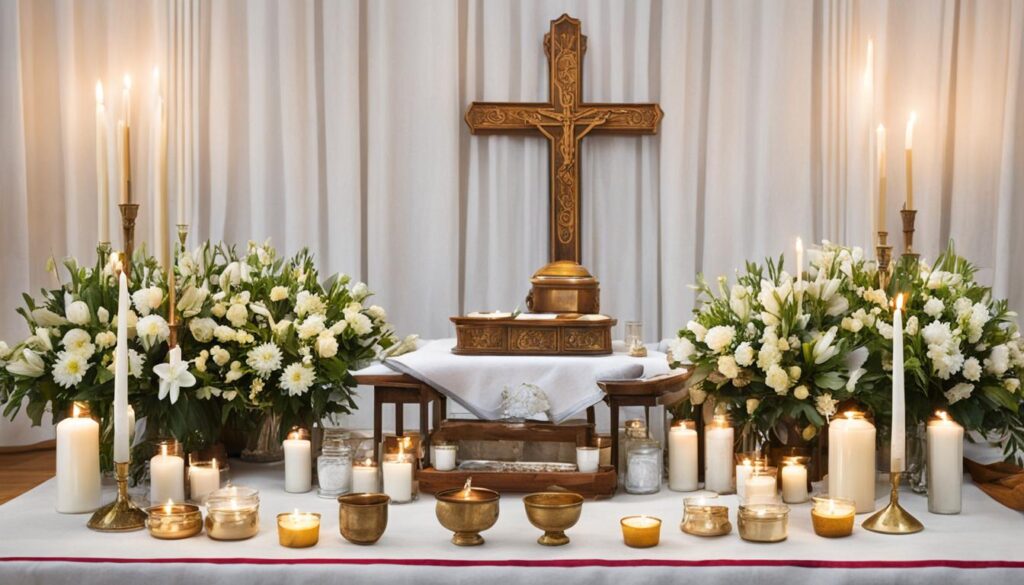
Leadership and Clergy in the Moravian Church
The Moravian Church has a well-defined structure of leadership and clergy that plays a crucial role in guiding the church and its congregations. The church has its own ordained ministry, consisting of deacons, presbyters, and bishops. These dedicated individuals are responsible for providing spiritual guidance, fostering growth, and overseeing the well-being of the church community.
Bishops hold a special position within the Moravian Church, serving as the spiritual overseers and offering guidance to both clergy and congregants. They are entrusted with the important task of ensuring that the church remains faithful to its core beliefs and values.
The Moravian Church also places great emphasis on the priesthood of all believers, recognizing the importance of the entire congregation in the life and ministry of the church. This inclusive approach fosters a sense of community and shared responsibility, empowering every member to actively contribute to the growth and well-being of the church.
It is through the dedicated leadership and commitment of clergy and church leaders that the Moravian Church continues to thrive and serve its members and communities around the world.
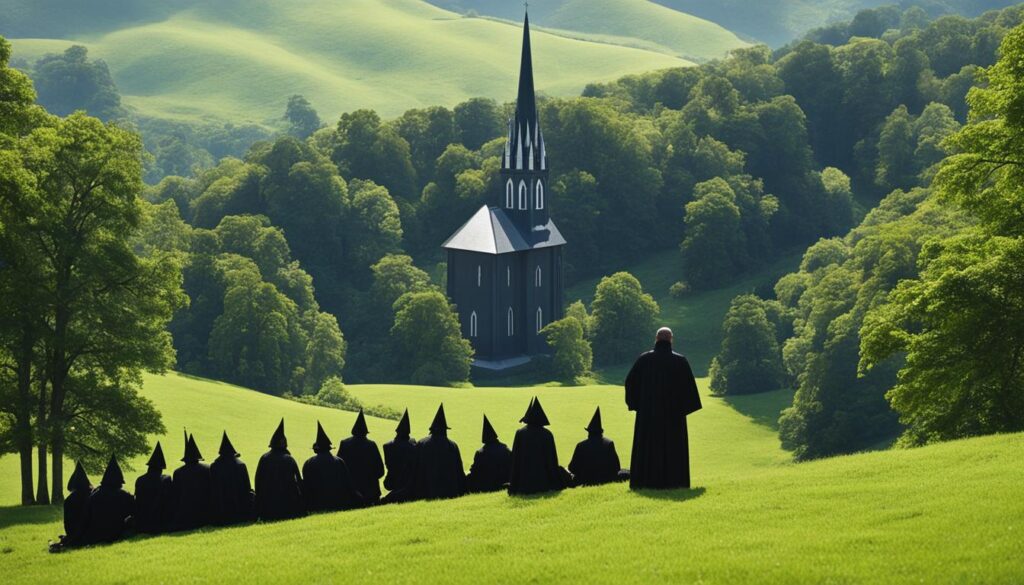
| Role | Responsibilities |
|---|---|
| Bishops | Provide spiritual oversight and guidance Offer pastoral care and counseling Ensure the adherence to core beliefs and values |
| Presbyters | Lead worship services Preach sermons and teach Provide pastoral care Administrative responsibilities |
| Deacons | Assist with worship services Support community outreach and service initiatives Provide care to the vulnerable and marginalized Assist with administrative tasks |
Worship Practices of the Moravian Church
The Moravian Church places a strong emphasis on worship, recognizing it as a central component of spiritual growth and community building. With a rich musical heritage, chorales and hymns hold a significant role in Moravian worship services. These musical expressions reflect the deep faith and creativity of the church, fostering a sense of reverence and spiritual connection among congregants.
The Moravian Church values a spirit of unity and togetherness in congregational life. Worship services are designed to engage and uplift the entire community, creating an atmosphere of shared faith and devotion. Through elements of praise, prayer, scripture reading, preaching, and the celebration of sacraments, Moravians actively participate in the worship experience, strengthening their relationship with God and one another.
“Worship is an opportunity to come together as a community, to express our gratitude, seek spiritual guidance, and renew our dedication to living out God’s teachings,” explains Bishop Matthew Anderson, a respected leader in the Moravian Church.
Worship in Action
“The Moravian Church cherishes the daily practice of prayer, which is deeply woven into our spiritual fabric. The Daily Watchwords, a guide to daily reflections and prayers, offers a source of spiritual guidance and inspiration for individuals and families in our congregation.”
Moravians recognize worship as a holistic experience extending beyond the walls of the church. The act of worship encompasses daily lives, reflected in acts of compassion, service to others, and stewardship of the environment. The Moravian Church seeks to inspire its members to live out their faith by embodying the principles of love, kindness, and justice in their interactions with the world.
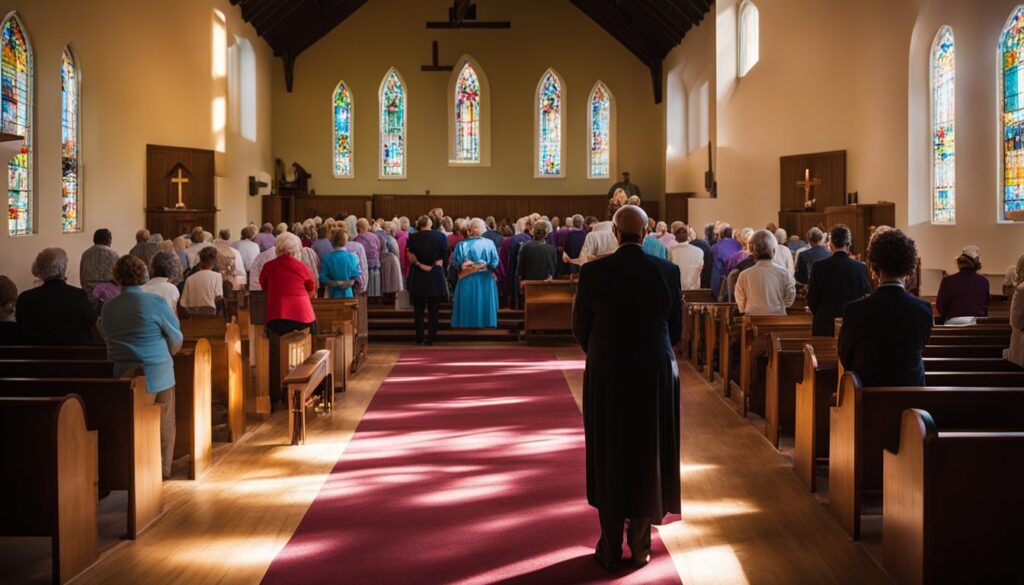
Through vibrant worship practices, the Moravian Church remains steadfast in its commitment to nurturing spiritual growth and fostering a strong sense of community among its members. The power of worship extends far beyond the sanctuary, shaping lives and guiding individuals to live as disciples of Christ in their everyday endeavors.
Sacred Texts of the Moravian Church
The Moravian Church recognizes the Bible as its sacred text, believing it to be a source of divine inspiration and spiritual guidance. The church holds a deep reverence for the Scriptures and promotes their importance through its own printing presses. Throughout history, the Moravian Church has been committed to making the Bible accessible to the people of Bohemia and Moravia in their native language.

Additionally, the Moravian Church acknowledges other creeds of the Christian Church, such as the Apostles’ Creed, Nicene Creed, and the Augsburg Confession. These creeds serve as guiding principles, shaping the Moravian Church’s practices and beliefs.
The Moravian Church’s approach to sacred texts emphasizes unity in essentials, liberty in nonessentials, and love in all things. It recognizes the Bible as the foundation of faith, while also valuing the contributions of other creeds and traditions that align with its core principles.
The Bible as the Foundation
The Moravian Church regards the Bible as the primary authority for its faith and teachings. It believes that the Bible contains the inspired word of God and is the ultimate guide for Christian living. The church encourages its members to engage in regular Bible study and reflection, seeking to deepen their understanding of God’s word and its relevance to their lives.
“The Bible is our textbook. It is, in our faith, a constitutive part of the faith, a dwelling place of the Holy Spirit, and a source of the highest authority and trust. It is the foundation of our teachings and practices and the star by which we navigate our lives, both individual and communal.” – Moravian Church
Creeds and Confessions
In addition to the Bible, the Moravian Church recognizes and respects the importance of other creeds and confessions within the Christian tradition. The Apostles’ Creed, Nicene Creed, and Augsburg Confession, among others, provide a framework for understanding and articulating essential beliefs.
These creeds serve as a unifying force, connecting the Moravian Church to the broader Church universal and fostering a sense of shared faith with Christians across different denominations. The Moravian Church values the diversity of expressions within Christianity while holding firm to its own distinctive beliefs and practices.
A Focus on Unity, Liberty, and Love
The Moravian Church’s approach to sacred texts is grounded in the principles of unity, liberty, and love. Recognizing that interpretations of the Bible may vary, the church maintains a spirit of unity by emphasizing core essentials of the Christian faith.
At the same time, the Moravian Church upholds the liberty of individuals and congregations to interpret and apply nonessential aspects of faith according to their own convictions, guided by the leading of the Holy Spirit. This freedom allows for diversity of practice and expression within the context of a shared faith.
Fundamentally, the Moravian Church believes that love should permeate all aspects of its life and interactions. Love for God, love for one another, and love for the world are central values that shape the church’s engagement with sacred texts and its overall mission.
| Sacred Texts | Importance |
|---|---|
| The Bible | The primary authority and source of inspiration |
| Creeds and Confessions | Guiding frameworks for shared beliefs |
| Unity, Liberty, and Love | Core principles shaping the Moravian Church’s approach |
Denominations and Sects within the Moravian Church
The Moravian Church, also known as the Unity of the Brethren, is a global Christian denomination that encompasses various provinces and districts. These divisions operate semi-autonomously while remaining part of the larger Moravian Church. Currently, there are 24 provinces of the Unity worldwide.
In North America, the Moravian Church is divided into two main provinces: the Northern Province and the Southern Province. The Northern Province extends from the East Coast to the West Coast and reaches as far north as Canada. The Southern Province primarily focuses on the Winston-Salem area and extends its outreach efforts to Florida and Georgia.
Beyond North America, the Moravian Church has congregations and communities in other parts of the world, including Africa, the Caribbean, and South America. These various regions showcase the diverse and global nature of the Moravian Church’s presence and influence.
Community and Outreach in the Moravian Church
The Moravian Church places a strong emphasis on community and outreach, embodying the teachings of Jesus Christ to love and serve one another. This commitment to fellowship extends beyond the Moravian church community, recognizing the contributions of Christians from different denominations to the universal Church of Christ.
In partnership with other churches, the Moravian Church actively supports local and global outreach efforts. By collaborating with fellow believers, the church amplifies its impact and shares the message of God’s love with a wider audience. Through these cooperative efforts, the Moravian Church seeks to address the spiritual and physical needs of individuals and communities around the world.
Educational endeavors play a vital role in the Moravian outreach, with schools and colleges being an integral part of church life. Recognizing the power of education to transform lives, the church invests in educational institutions to empower individuals and foster intellectual growth within the communities it serves.
Furthermore, the Moravian Church organizes camps, conferences, and retreats that provide opportunities for spiritual growth and development. These gatherings offer a space for believers to deepen their connection with God, engage in meaningful fellowship, and receive spiritual nourishment.
At the heart of its outreach efforts, the Moravian Church seeks to fulfill the mission of spreading the good news of God’s love to all people, regardless of their socioeconomic status or societal standing. The church is particularly dedicated to reaching out to the poorest and most despised members of society, reflecting the inclusive and compassionate nature of Christ’s teachings.
In summary, the Moravian Church’s commitment to community and outreach is an integral part of its identity. Through collaboration, education, and a focus on the marginalized, the church actively seeks to make a positive difference in the lives of individuals and communities, embodying the essence of its faith.
Conclusion
The Moravian Church has a rich and storied history that has shaped the course of Protestant Christianity over the past five centuries. From its humble beginnings in Bohemia and Moravia, the Moravian Church has grown into a global community with vibrant congregations and a commitment to spreading the gospel message.
Central to the Moravian Church is its emphasis on education, worship, community, and outreach. These pillars have allowed the church to flourish and establish schools and colleges around the world, nurturing the faith of its members and equipping them for service.
As the Moravian Church looks to the future, it remains steadfast in its mission to share God’s love and grace with all people. With a rich heritage, deep-rooted traditions, and a passion for spiritual growth, the Moravian Church continues to be a beacon of light in a world in need of hope and transformation.
FAQ
What is the history of the Moravian Church?
The Moravian Church has a history dating back over five centuries. It was officially organized in 1457 in the village of Kunvald and was founded by followers of Jan Hus, a Catholic priest who led a protest movement against the practices of the Roman Catholic Church.
What are the beliefs and doctrines of the Moravian Church?
The Moravian Church recognizes Jesus Christ as Lord and follows his teachings. The church believes in the importance of faith, love, and hope in the Christian life. It practices both infant baptism and adult baptism, and celebrates Holy Communion, believing in the unique presence of Christ in the communion elements.
What are the sacraments and rituals of the Moravian Church?
The Moravian Church recognizes two sacraments: baptism and Holy Communion. Baptism is practiced through sprinkling, and Holy Communion is seen as a unique act of covenant with Christ and fellow believers.
How is leadership and clergy structured in the Moravian Church?
The Moravian Church has its own ordained ministry, including the orders of deacon, presbyter, and bishop. Bishops have a special role in spiritual oversight and guidance, but the church also values the priesthood of all believers, emphasizing the importance of the entire congregation in the life and ministry of the church.
What are the worship practices of the Moravian Church?
The Moravian Church places a strong emphasis on worship and has a rich musical heritage. Chorales and hymns play an important role in worship services, which include elements of praise, prayer, scripture reading, preaching, and the celebration of sacraments. Daily prayer is also encouraged, with the Daily Watchwords providing spiritual guidance.
What are the sacred texts of the Moravian Church?
The Moravian Church recognizes the importance of the Bible as the sacred text. It also embraces other creeds of the Christian Church, such as the Apostles’ Creed, Nicene Creed, and the Augsburg Confession, guiding its practice and beliefs.
Are there denominations and sects within the Moravian Church?
Yes, the Moravian Church is organized into multiple provinces and districts, each operating semi-autonomously while remaining part of the global Moravian Church. Currently, there are 24 provinces of the Unity, including the Northern and Southern Provinces in North America.
How does the Moravian Church emphasize community and outreach?
The Moravian Church values fellowship with other Christians and cooperates with other churches in supporting local and global outreach efforts. The church is actively involved in education, with schools and colleges being an integral part of church life. It emphasizes camps, conferences, and retreats for spiritual growth and development.
What is the conclusion regarding the Moravian Church?
The Moravian Church has a rich history that spans over five centuries and has played a significant role in the development of Protestant Christianity. It remains committed to its mission of spreading the gospel and nurturing faith, with a strong emphasis on education, worship, community, and outreach.


